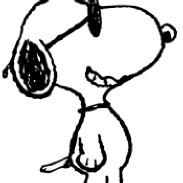ויקרא פרק כו יז
וְנָתַתִּי פָנַי בָּכֶם וְנִגַּפְתֶּם לִפְנֵי אֹיְבֵיכֶם וְרָדוּ בָכֶם שׂנְאֵיכֶם וְנַסְתֶּם וְאֵין-רֹדֵף אֶתְכֶם:
The scholars of the Hebrew language express the distinction between the word אויב and the word שונא, both of which mean an adversary. The noun אויב implies an enemy that hates in a revealed manner and does wrong actively. Whereas, the noun שונא is someone that hates at times only in their heart and does not take negative actions. This distinction in found in many verses in Tanach.
Rashi explains (Devarim 1, 44) on the verse, “They would pursue you like bees.” Just like bees sting a person, the bee immediately dies, so should happen to one’s adversary that when they do bad to you, they should immediately die.
And this is the explanation of this verse. When an adversary (אויב) performs negative acts to the Jews, the result should be that the adversary should die (like the example of the bee), and then the שונא (who hates internally) would be left to rule over us, and the language of the verse is precise.
ויקרא פרק כו מד
וְאַף גַּם-זֹאת בִּהְיוֹתָם בְּאֶרֶץ אֹיְבֵיהֶם לֹא-מְאַסְתִּים וְלֹא-גְעַלְתִּים לְכַלֹּתָם
Evidently, this verse is a reference to a future time when the Jews are in Galus and HaShem promises for the future. Yet, the verse is written in the past tense requiring an explanation.
Possibly, the concept of repulsiveness (מאוס) has two types. One type is repulsive for a set time due to a reason that will pass and then the matter would become likable again. For example, food when one has a sickness or indigestion, then food appears to be repulsive. However, when one feels better, food returns to being attractive and desirable.
Then, another state of repulsiveness is constant, for all times. Even thinking about the item, would bring feelings of disgust.
Thus, this verse is saying like the first type. Even with all these degrading actions while in their lands, the disgust would be a thing that is limited to the past, and would not be so disgusting to continue into the future. Thus, then the time passes, one would return to have mercy and have good feelings.
Thus, one can possibly explain the end of Megilas Eichah where the verse says מאוס מאסתנו. How could the author of that Megilah end the Megilah with a negative statement (contrary to the well-known principal that one does not end a Parsha or Sefer with negative concepts)? However, this could be an allusion to comforting, as if to say that the disgusting matters will not remain forever disgusting to us since the anger against us would be removed, we would return in Teshuvah to a state of a loving relationship.
Besides Megilas Eichah, we also find three other Books in Tanach that seem to end in negative concepts. The others are Megilas Koheles, Yeshayahu, and Malachi. A sign to remember these four books isאקים את סוכת דוד – איכה, קהלת, ישעיה, מלאכי הרחמן הוא יקים לנו את סוכת דוד ב"ב
Subscribe to:
Post Comments (Atom)

No comments:
Post a Comment